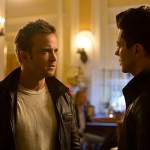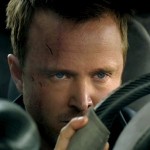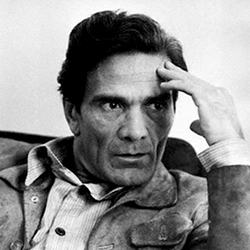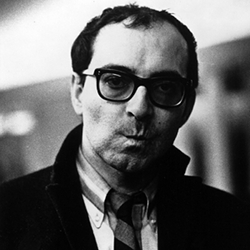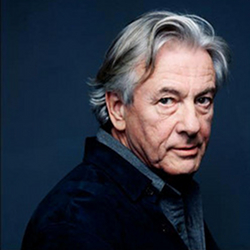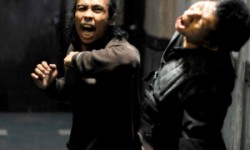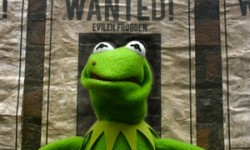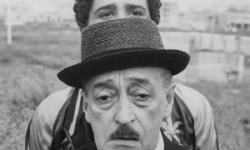
Review: Once Upon a Time in Anatolia (2011)
Cast: Muhammet Uzuner, Yilmaz Erdogan, Taner Birsel
Director: Nuri Bilge Ceylan
Country: Turkey | Bosnia and Herzegovina
Genre: Crime | Drama
Official Trailer: Here
The obfuscation of windows lends an ethereal quality to figures inside of an unknown building. The camera slowly moves forward in a search for clarification of these hazy figures and their unknown actions. We are finally close enough to see the smiling faces and camaraderie of these characters as they share a drink. A character approaches the window and the camera quickly recoils in response to his unexpected approach. We have witnessed the observer effect as applied to cinema. The exploration of the greater questions of mortality and the mysteries of life are a monumental task, as merely acting as a passive observer will have unquantifiable effects on the outcome. It is when an artist tries to take an easy path to these difficult questions through clumsy metaphors or absolute certainty of the nature of the world that the work loses its power. Once Upon a Time in Anatolia is a film that is aware of this effect, and chooses instead to contemplate on the boundless mystery found in the movement of leaves in the wind or the revelations found by staring at the eyes of a person as they try to put meaning to that which cannot be understood.
It is in each contemplative shot that the power of this film resides. Exposition and traditional narrative are unimportant when exploring the larger questions, and would be powerless in properly conveying the senselessness yet universal unimportance of the actions of man. We have no context for the incredible shot that follows the opening sequence of the film, but the power of the visuals offer clues and we are eventually able to overhear enough to put together some of the reasons for this late night journey. Orbs of light float across the landscape with unknown purpose until they approach our vantage close enough to identify themselves as cars. We have not yet learned of why these figures are driving through the countryside and the overheard murmurs offer only more questions, but the sepia drenched orbs of light have told us more important things. We are on a journey of discovery, and perhaps the last journey that mankind will ever take.
We eventually discover that these men are on a search for a body. We don’t know who the body belonged to, nor do we know the reasons for our quest, but we drift through the darkness with nothing more than the sickly sepia tones of the cars’ spectral headlights as they cast their unnatural manmade luminescence on the rolling Turkish hillsides and press on as we are enchanted by the power of the imagery and our nagging curiosity. The world that we are observing represents a close approximation of our own, but there is a fantastical quality in this world, and each character in the film represents a different facet of humanity as they are on a quest for a corpse, but more importantly a quest for answers in regards to our own mortality and the illogical actions of man.
…Ceylan illustrates the insignificance and inherent innocence of mankind by surrounding the murderer with a soft halo as he is being transported to the scene of his misdeeds.
 Why must man live at odds with the natural order of the world? Why do men carry out illogical actions with little to no regard to the seemingly permanent consequences of those actions? We’ll probably never gain answers to these questions, but there is a uniquely human quality in our search for answers despite our frustrations in merely figuring out which questions we should be asking. If our mortality is inevitable, then what purpose is served in casting judgment against and punishing those that violate our human concepts of morality? Perhaps we shouldn’t be asking ourselves why men kill, and what fundamental flaw exists in the human condition that drives men to deeds that are contrary to our own well-being. We aren’t given definitive answers to the actions of our murderer, but those answers would not be relevant in unraveling the real mysteries of our contradictory nature. We are instead granted visual clues that solidify the possible intent of the film. The murderer has not lost his humanity despite the nature of his crime, and Ceylan illustrates the insignificance and inherent innocence of mankind by surrounding the murderer with a soft halo as he is being transported to the scene of his misdeeds.
Why must man live at odds with the natural order of the world? Why do men carry out illogical actions with little to no regard to the seemingly permanent consequences of those actions? We’ll probably never gain answers to these questions, but there is a uniquely human quality in our search for answers despite our frustrations in merely figuring out which questions we should be asking. If our mortality is inevitable, then what purpose is served in casting judgment against and punishing those that violate our human concepts of morality? Perhaps we shouldn’t be asking ourselves why men kill, and what fundamental flaw exists in the human condition that drives men to deeds that are contrary to our own well-being. We aren’t given definitive answers to the actions of our murderer, but those answers would not be relevant in unraveling the real mysteries of our contradictory nature. We are instead granted visual clues that solidify the possible intent of the film. The murderer has not lost his humanity despite the nature of his crime, and Ceylan illustrates the insignificance and inherent innocence of mankind by surrounding the murderer with a soft halo as he is being transported to the scene of his misdeeds.
Death is an inevitable part of our own existence, but we do not like to be presented with this truth. We go out of our way to avoid being confronted with death despite it being part of the natural order of the world. We have an unspoken pact with society to ensure that we are not unnecessarily reminded of our own mortality, and the dead must be shielded from us until properly sterilized and decontextualized. We are unprepared to be confronted with the sensory realities of death, not necessarily out of respect for those that have passed, but rather because of our own fears and inability to process the inevitability of our own demise. Those that have chosen professions that put them on the front lines and confront death in ways that most members of civilization do not are still unable to completely shake this fear and may use humor or a clinical mindset to mitigate the effects of being presented with these harsh realities. It makes sense from an evolutionary perspective to take proper precautions to avoid the spread of illness, but even images that we know cannot harm us can still cause a visceral reaction because of this illogical fear of the inevitable.
Man and nature are seemingly in direct opposition with one another as illustrated by compositions of the Anatolian steppes lit by sickly headlights as they pervert the landscape with their artifice…
 Perhaps we are all innocents on a universal scale, but it is just as probable that we are all being punished for unquantifiable crimes against the natural order of the world. Man and nature are seemingly in direct opposition with one another as illustrated by compositions of the Anatolian steppes lit by sickly headlights as they pervert the landscape with their artifice but offer our only means of light as we fumble through the darkness. Nature strikes back by attacking a village with wind and killing the power, and gives us an ironic counterpoint to the sequences of grass being illuminated by artificial lighting with man in his artificial environment being lit by natural candlelight out of necessity. We are all participants in a symbiotic tug of war with nature, just as we are at odds with the equally mysterious nature of self that exists within.
Perhaps we are all innocents on a universal scale, but it is just as probable that we are all being punished for unquantifiable crimes against the natural order of the world. Man and nature are seemingly in direct opposition with one another as illustrated by compositions of the Anatolian steppes lit by sickly headlights as they pervert the landscape with their artifice but offer our only means of light as we fumble through the darkness. Nature strikes back by attacking a village with wind and killing the power, and gives us an ironic counterpoint to the sequences of grass being illuminated by artificial lighting with man in his artificial environment being lit by natural candlelight out of necessity. We are all participants in a symbiotic tug of war with nature, just as we are at odds with the equally mysterious nature of self that exists within.
A recurring conversation between a prosecutor and doctor illustrate the contradictions that exist in us all. They discuss the mysterious death of a woman that had prophesized the date of her demise and the doctor as a pragmatic man of science disregards the mystery of the event to try and find a more realistic explanation. The prosecutor wants to believe that there are more profound and mysterious explanations for the event, but we eventually come to learn of the inner pain that drives his quest. We all strive to find the answers whether we are pragmatic or idealistic, and it is entirely likely that we will never find what we are looking for, but if we ever stop our futile pursuit of the unattainable truths and stop being shaped by the insignificant revelations along the way, then we will have lost that which gives us our only fleeting opportunities for universal significance.
Related Posts
![]()
Matthew Blevins
![]()
Latest posts by Matthew Blevins (see all)






